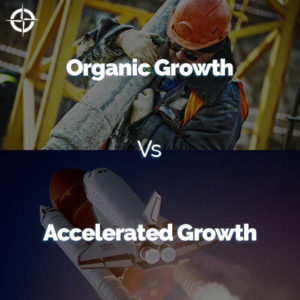The Cash Advance, even though it has been referred to as “hard money” or “expensive money” or just a bad idea for a business, it is actually the unsung hero of American small business, and nobody wants to say it. It has aided businesses much needed expansion or additions to their business, most of which, are pertinent to its health and continuation. It has saved businesses near death, while also enabled expansion when no other options were available.
The Cash Advance is often misrepresented by people’s own failures, and a stigma materializes around something that has truly and wholeheartedly stimulated business and the economy. When used correctly, the Cash Advance opens up a unique potential for a business to take the next step into becoming successful and kindling a relationship with an entity that is able to back their growth.
We are going to go over the bad stigma that has been formed, how it got there, and what the actual truth is.
Why the bad stigma?
The reason Merchant Cash Advance (MCA) gets such a bad reputation, is because the people are what make its reputation. The Cash Advance can, to either extreme, help or hurt a business and the outcome is solely in the hands of the business owner. In the world of business, and in life itself, “If you commit to any big decision without the necessary planning and due diligence, you will fail. Plain and Simple.”
It’s the same flawed argument as saying Pitbulls are bad and aggressive dogs, when it’s clear that a dog’s behavior is a reflection of how the owner has treated it. In reality, Pitbulls are very sweet dogs that were typically used for “nanny dogs”. This is the same skewed logic that distances humans and their actions, from the responsibility and effect of their own decisions.
It’s not the Cash Advance, its the business not functioning in a successful manner.
We must also keep in mind a very important fact, funders have no interest advancing money to businesses who are failing. If a business fails after taking a cash advance, everybody loses including the funder. Funders are businesses as well, operating similar to the entities they give money to. Unlike the common misconception, there would be no gain for a funder to loan money when a business is on a severe downhill. If a merchant doesn’t do well with a cash advance, it is completely on them.
The misrepresentation of “interest” with APR
If you do your research on the MCA, you will see calculators to find out APR. This is intentional misrepresentation from the true numbers.
APR is completely and utterly irrelevant when it comes to short-term MCA. APR stands for (Annual Percentage Rate). It would be useless and misleading to calculate your interest rate annually when an MCA is short term and doesn’t usually go over a year. APR is a metric for long term loans.
Ex:
Useful APR calculation: John takes a loan of 20k over 3 years. His factor rate is 1.12, or in other words, his total cost of capital is 12%, $2,400.
Johns APR is how much interest he paid within the time of 1 year. 4% APR
Useless APR calculation: John takes a loan of 20k of 4 months. His factor rate is 1.12, or in other words, his total cost of capital is $2,400.
Johns APR is 36% even though his true interest rate is 12% and total cost of money $2,400.
In this case, if we calculate how much interest john would pay with APR, his total cost would be $7,200. Way off from the correct numbers and extremely misleading.
The Truth
After all that, we finally arrive at the truth. The truth is that the MCA spells unbounded potential for businesses who don’t qualify for bank financing. The true power of what is achievable with a cash advance is only taken advantage of if you understand what goes into dedicated due diligence and planning of your own. The true intention behind the MCA is providing funds that wouldn’t otherwise be available to get the business to the next step. Pass go collect 200 dollars.
The Truth about the cost of money is, relative to a rate that a bank will give a highly qualified business owner, it’s expensive. But by principle, it can never be too expensive. Too expensive would mean the business would not be able to afford it, and that would mean the business wouldn’t get approved in the first place. As I mentioned before, a funder has no intention of advancing funds to a business who couldn’t afford it. In order for the business to use the program successfully, it has to continue to function and create revenue.
Expensive is relative. There is a cost associated with the funds that are being received, but that cost also encompasses an unwritten value; A valuable relationship with Funder who will be able to create resolutions for the future of the business. The funder is also going out on a limb, taking incredible risks with businesses whose credit isn’t in the finest of shape. There is a reason banks take longer and have less approvals. Cast Capital will be able to raise cash that is not traditionally accessible as well repair credit scores so that by the time the MCA is halfway paid down, the merchant qualifies for some of the more dynamic working capital programs available for higher qualifying merchants. They have solutions for the future but also the means to be able to access those solutions. This is very important.
In Summary, Success is in the hands of the beholder. The truth is, The Cash Advance is just a useful tool that is more available than bank financing. It has the power to make or break you, put you under or propel you into what a successful American business is supposed to be, profitable.
Get in touch.





